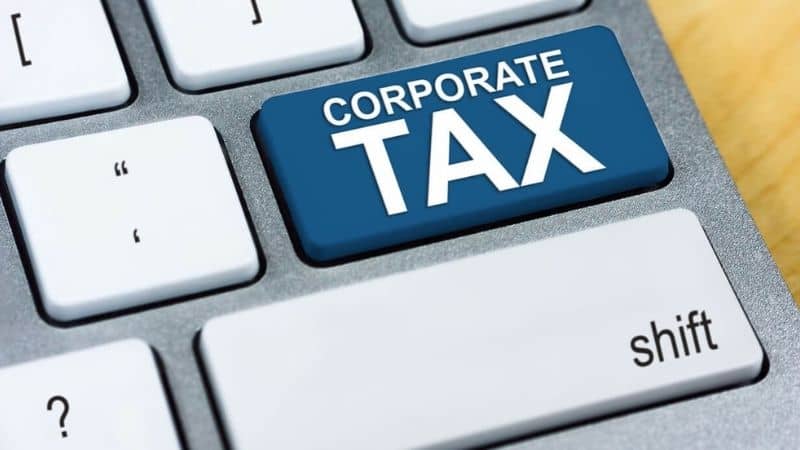On 1st February 2021, the Finance Minister Nirmala Sitharaman presented the Union Budget of India for 2021-2022 after the global economy had been pushed into a massive contraction due to unprecedented circumstances generated globally by the corona pandemic. She said that ''Faith is the bird that feels the light and sings when the dawn is still dark” quoting Rabindranath Tagore while discussing how the government had aided the distressed people during the inevitable lockdown and its efforts in reviving the economy from this sui generis crisis like the Atma Nirbhar package, redefinition of MSMEs, Privatisation of Public Sector Undertakings and many more. According to Sitharaman, the first budget of this new decade, which is also a digital budget is primarily based on health and well-being, physical and financial capital and infrastructure, inclusive development for aspirational India, reinvigorating human capital, innovation and R&D, and 'Minimum Government, Maximum Governance'.
Highlights
Important announcements in the Union Budget 2021-22 includes a plethora of hikes in customs duties to provide an impetus to Make in India, infrastructure promises to States where the election is near, and disinvestment in two Public Sector Banks. The fiscal deficit for the current financial year has substantially increased and stands at 9.5% of the Gross Domestic Product while a fiscal deficit of 6.8% is estimated for the financial year of 2022.
A new scheme named PM Atma Nirbhar Swasthya Bharat Yojana will be launched to improve the conditions of primary, secondary, and tertiary healthcare. The government has announced Mission POSHAN 2.0 for better nutritional results in 112 aspirational districts.
The Jal Jeevan Mission Urban is aimed at developing the state of water availability all across the nation. The Finance Minister mentioned 100 new Sainik Schools that will be set up along with the plans of building a Central University in Ladakh and 750 Ekalavya schools for tribal areas with scarce or no access to education.
The government has also announced a vehicle scrapping policy by introducing automated fitness tests every 20 years for personal vehicles and 15 years for commercial vehicles. Highway and road development works have been declared in the states of Kerala, Tamil Nadu and Assam. National Asset Monetising Pipeline has been launched to scrutinize the process of asset monetisation. A future-ready Railway system has been promised by 2030 with the National Rail Plan while Metro services have been announced in 27 different cities. The government also issued a statement about the National Hydrogen Mission that is meant to generate hydrogen from clean power sources along with a gas pipeline project that is proposed in Jammu and Kashmir.
The Union Budget and Taxes
1. Corporate Tax

There are no changes in the rate of corporate tax in the budget that has been introduced in 2021. The last date for registration of startups to be eligible for tax holiday has been extended up to 31st March 2022 from 31st March 2021.
Slump sales have been ratified to incorporate in its purview all sorts of transactions like sale, exchange, relinquishment of assets and more.
There will be no depreciation on goodwill whether self-created or acquired. With respect to acquired goodwill on which depreciation has been claimed in past years, the written down value and capital gain shall be computed in the manner prescribed. Moreover, in other cases, the cost of acquisition will be the actual price of purchase and NIL for self-generated goodwill while computing capital gains.
A safe harbour of 10% with respect to the difference between stamp duty value has been announced and value and actual sale consideration for the purposes of computation of business income will be increased to 20% in case of primary transfer of residential properties taking place between 12 November 2020 and 30 June 2021 given the consideration for such transfer does not exceed 2 crore rupees.
Since the government is bent on disinvestment plans concerned to the Public Sector Undertakings it will amend certain parts of the Income Tax Law to relax tax neutral demerger and carry forward of losses for disinvested public sector undertakings in amalgamations.
Apart from these tax payments relaxation for dividend income has been announced along with the increase of tax audit threshold from 5 crores to 10 crore rupees, no deduction for late deposit of employee's contribution to Provident Fund, and extension in tax holiday for affordable housing.
2. International Tax

Clarifications have been made regarding the implementation of Equalisation Levy to e-commerce transactions which will reduce ambiguities to a certain level. Litigations have been reduced and a non-hostile regime for taxpayers has been aimed by changing the Authority of Advance Ruling mechanism.
The Equalisation Levy, as introduced by the Finance Act 2016, is levied at 6% on the gross consideration received by non-residents for online advertisement and related services from specified persons. The FA 2020 which came into effect from 1 April 2020 extended the scope of EL to charge a 2% levy on gross consideration received from the online sale of goods or provision of services. This Act provided for an exemption from income-tax where the amount was subject to EL. The ambiguities in this regard have been mitigated with amendments. Furthermore in order to provide rulings to the taxpayer in a timely manner the " Board for Advance Ruling" will be constituted.
3. Transfer Pricing

The Minimum Alternative Tax provisions have been rationalized to recalculate previous years book profits and reflect additional income on account of secondary adjustment or Advance Pricing Agreement entered by the taxpayer.
Moreover, the time limit for completion of transfer pricing assessment proceedings for the financial year of 2021-22 and onwards is reduced by 3 months and appellate proceedings before Income Tax Appellate Tribunal will be made "faceless".
4. Personal Tax

This year's budget ensures the ease of compliance for individual taxpayers with no increase in personal taxes. Various steps have been proposed by the Finance Minister towards the continuation of the reforms already taken for the convenience of taxpayers like faceless appellate proceedings and reduction of litigation with a dispute resolution committee.
There has been an increase in taxability big interest on the employee's contribution to specified PF schemes in excess of thresholds and maturity proceeds received from mentioned ULIPs. In light of technological advancements the time limit for filing of belated and revised returns has been reduced.
5. Indirect Tax

The government has introduced Agricultural, Infrastructure, and Development Cess to be levied on import of specific goods and on the production of petrol and diesel. Conditional exemptions given under customs will have a time limit from now on. Penalties have been invigorated to address tax leakage. Provisions relating to zero-rated supplies under GST have been rationalized. Moreover, GST audit certification by a professional will not be required.
Summing up:
With these insights into the Union Budget, it is universally accepted that its impactful decisions will affect the way we think and deal with our money and assets.
